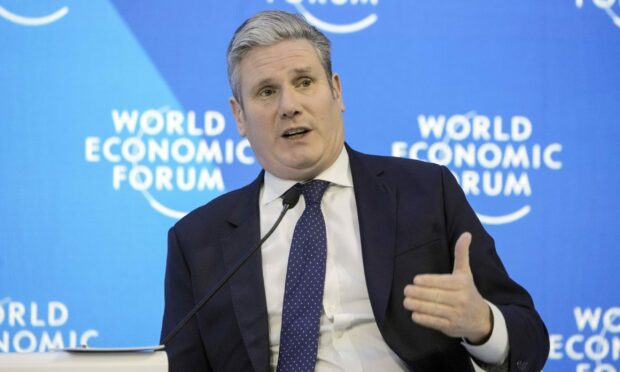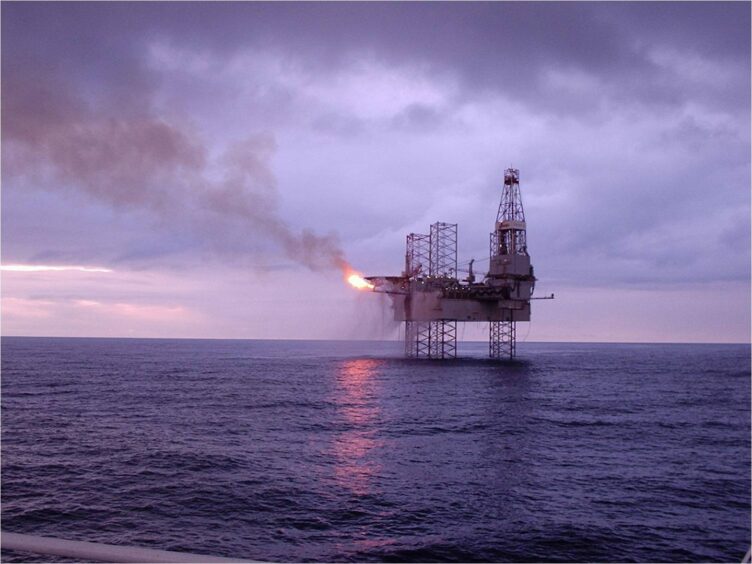A Labour Government would block fresh investment in North Sea oil and gas, its leader has confirmed
“What we’ve said about oil and gas is there does need to be a transition,” Keir Starmer told a panel at the World Economic Forum in Davos.
“Obviously, it will play its part during that transition, but not new investment, not new fields up in the North Sea, because we need to go towards net-zero, we need to ensure that renewable energy is where we go next.”
But his comments have drawn criticism from industry chiefs, who have accused the Labour leader of failing to properly engage with the sector.
A rough fortnight for oil and gas
Mr Starmer’s comments come hot on the heels of the Scottish Government’s energy strategy, which declared a presumption against further North Sea exploration.
While energy policy is reserved by Westminster, meaning the stance is largely symbolic, concerns have been raised about the knock on impact on investor confidence.
That has already been severely dented by the UK Government’s doubling down of its windfall tax on North Sea producers.
Just this week oil giant Harbour Energy confirmed plans for job cuts, with the company blaming the controversial energy profits levy.
‘Words have consequences’
In the first poll of 2023, Labour extended its lead over the Tories to 20 points, consolidating an already substantial lead – the next UK general election will be held in 2024.
Jenny Stanning, trade body Offshore Energies UK’s (OEUK) external relations director, warned Starmer that “words have consequences”, and invited him to engage with industry.
She said: “Keir Starmer’s suggestion today, at Davos, that there should be no further investment in North Sea oil and gas will be deeply upsetting to the many workers and communities dedicated to providing the UK with energy. It will also further damage investor confidence.
“Those communities, whether in the north-east of Scotland, or England’s energy coast, from Norfolk to the Scottish borders, have been central to the UK’s energy security for five decades – and especially in the last year’s energy crisis.”
“We all know that the UK must transition to low carbon energies as fast as possible. Our industry has pledged to work with the UK’s governments to reach net zero by 2050. But, in the three decades till then we will need gas and oil.
“About 24 million homes (85% of the total) rely on gas boilers for heat and we get 42% of our electricity from gas. We also have 32 million vehicles running on petrol and diesel. So, we need gas and oil.”
Aside from taking aim at oil and gas, Mr Starmer called for the creation of a “clean power alliance” to reduce the influence of the world’s biggest fossil fuel cartel.
In his view, an “inverse OPEC” would involve countries sharing “net-zero share information”, co-operating and allotting investment, “with a view to driving the global prices down”.
Meet with us
But while praising his support for green energy, Ryan Crighton, policy director at Aberdeen & Grampian Chamber of Commerce, said he finds it “very hard to understand how Labour can form an energy policy given how little I know it has engaged with the industry.”
He added: “The energy transition is going to take 25 years or more and there is quite clearly a sustained period of time where oil and gas will remain a crucial part of our energy mix.
“So, we have two options; to produce more domestically, with full control over the regulatory environment in which it is extracted; or to import an increasing amount of our energy, with the heavier carbon toll that shipping it from other parts of the world carries. The latter makes little economic sense, and even less environmental sense – and opinion polls are consistently showing that the public back this view.
“It should not be lost on people that Labour has revealed this stance just a week after it emerged the party has accepted £360,000 in donations from the man bankrolling Just Stop Oil.
“I suggest Sir Keir and his shadow cabinet come to Aberdeen to get a balanced view from the people and companies delivering energy security for the UK today, while ploughing billions into the low-carbon energy sources of tomorrow.”



